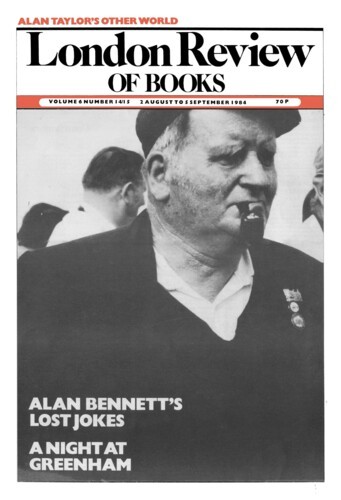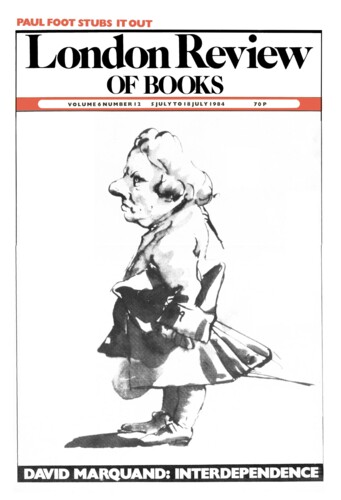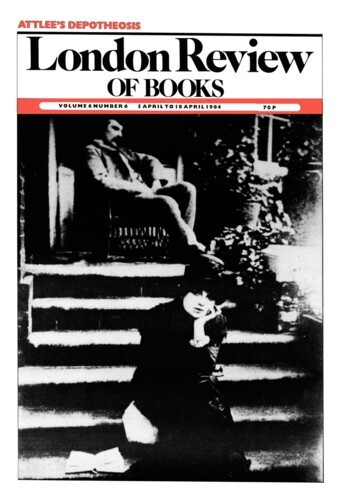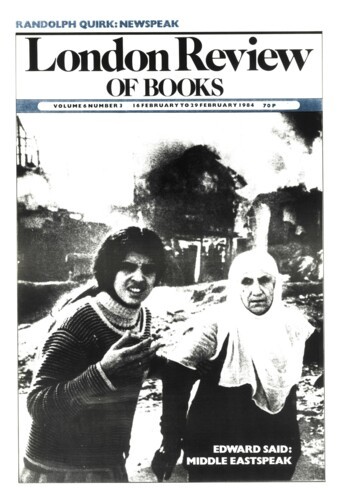Miserable Creatures
C.H. Sisson, 2 August 1984
The fourth volume of the Collected Letters of Thomas Hardy opens with a recommendation for Mr Harry Pouncy, ‘Lecturer and Entertainer’, of Dorchester, apparently with a view to his extending his fascinations to a wider public. There follows a note to Desmond MacCarthy suggesting – surely with the firm touch of a provincial or a Victorian survivor – that it would be better if the New Quarterly were called instead the Quarterly Herald or Quarterly Clarion, ‘or some such’. The first of these letters occupies five lines of print, the second three. Hardy was not the man to give away copy unnecessarily. In January 1909, at the age of 68, he had his last novel, Jude the Obscure, 12 years behind him and his first volume of verse, Wessex Poems, no more than ten years. He had just finished The Dynasts and was preparing Time’s Laughing-Stocks for the press. He was not only a well-known novelist but an incipient Great Figure; in 1910 he was awarded the OM. He was a clubman and at this stage still took a flat in London for a few weeks at the right time of year; one has the impression that all this was to advance his career rather than for any pleasure such things might give him. At home in Dorchester he was as guarded as ever: ‘Although I can influence a London public to a slight extent by press letters, I can influence nobody down here.’ He even seems to take a certain satisfaction in telling people what he is not willing or able to do. He is a curmudgeonly old man and no mistake, and as a correspondent he acts on the best security principles, telling no one more than he or she needs to know for the business in hand. Such a habit of mind can hardly make the most gracious of letter-writers, and Hardy is not one of those whose communications one reads for their own sakes, as one does the letters of Madame de Sevigné, Madame du Deffand, Edward Fitzgerald – or indeed of William Cowper, the new edition of whose Letters and Prose Writings has just reached its fourth volume. Yet Hardy’s letters are admirable in their way, laconic and to the point, written with his eye on the spirit-level, as becomes the son of a small builder.–




